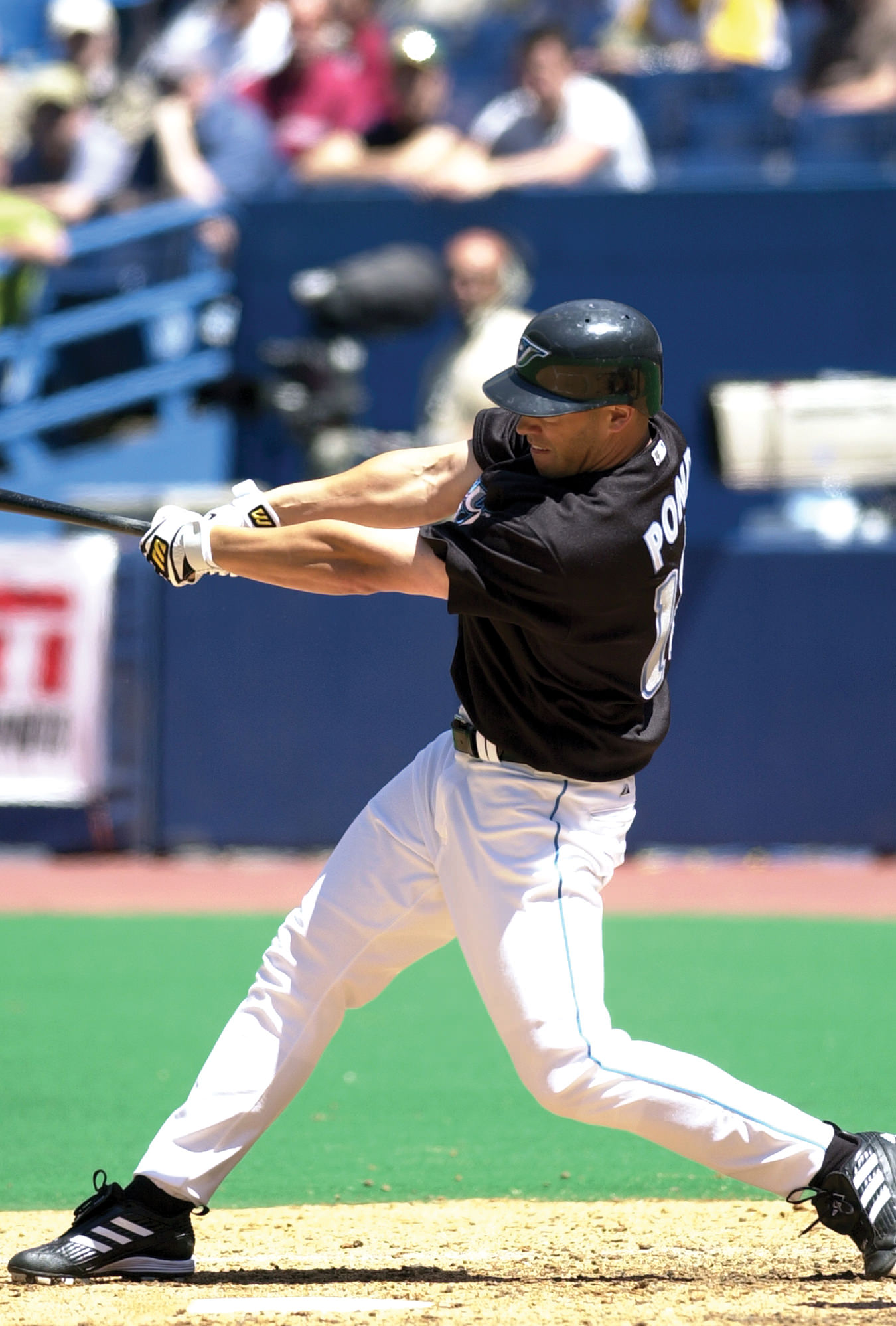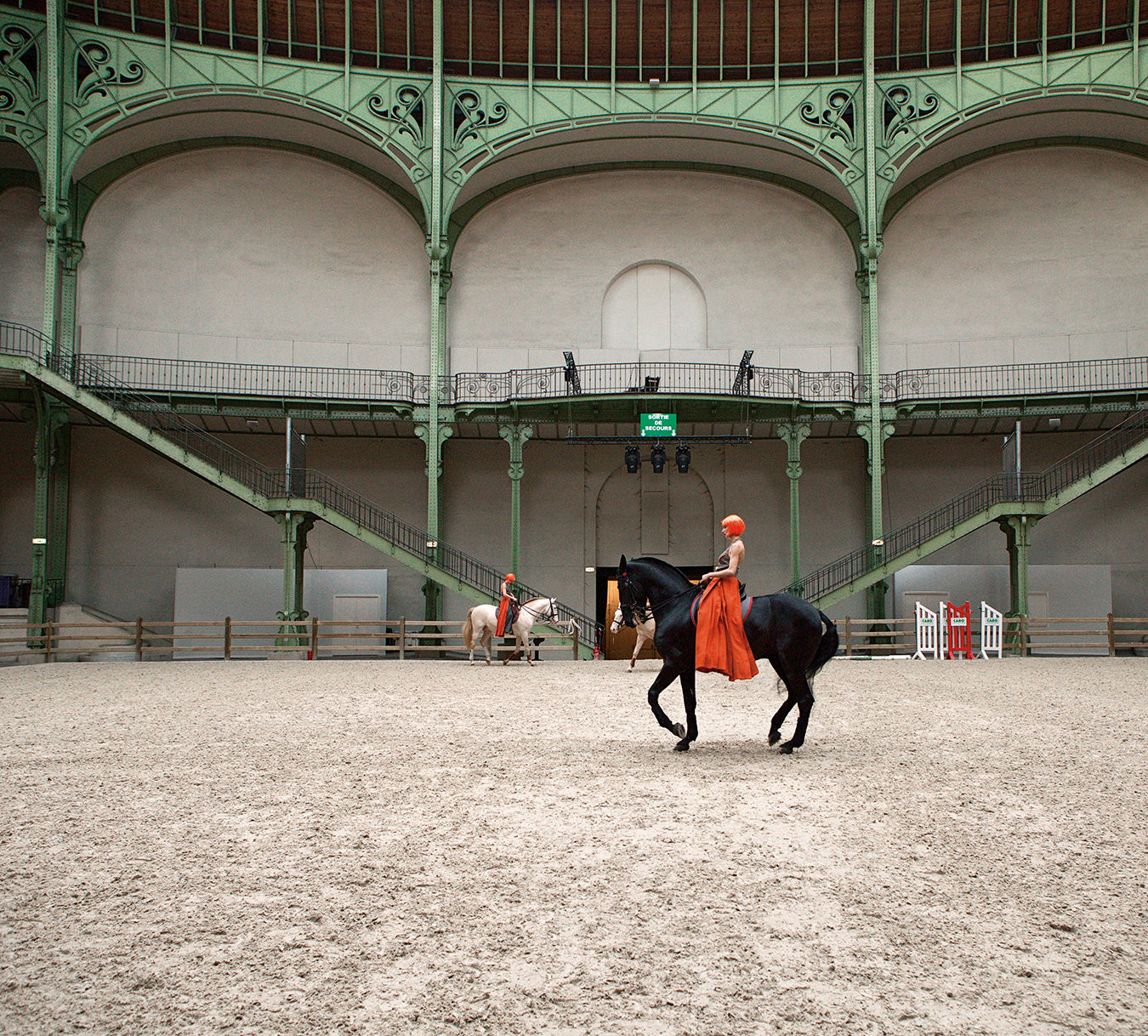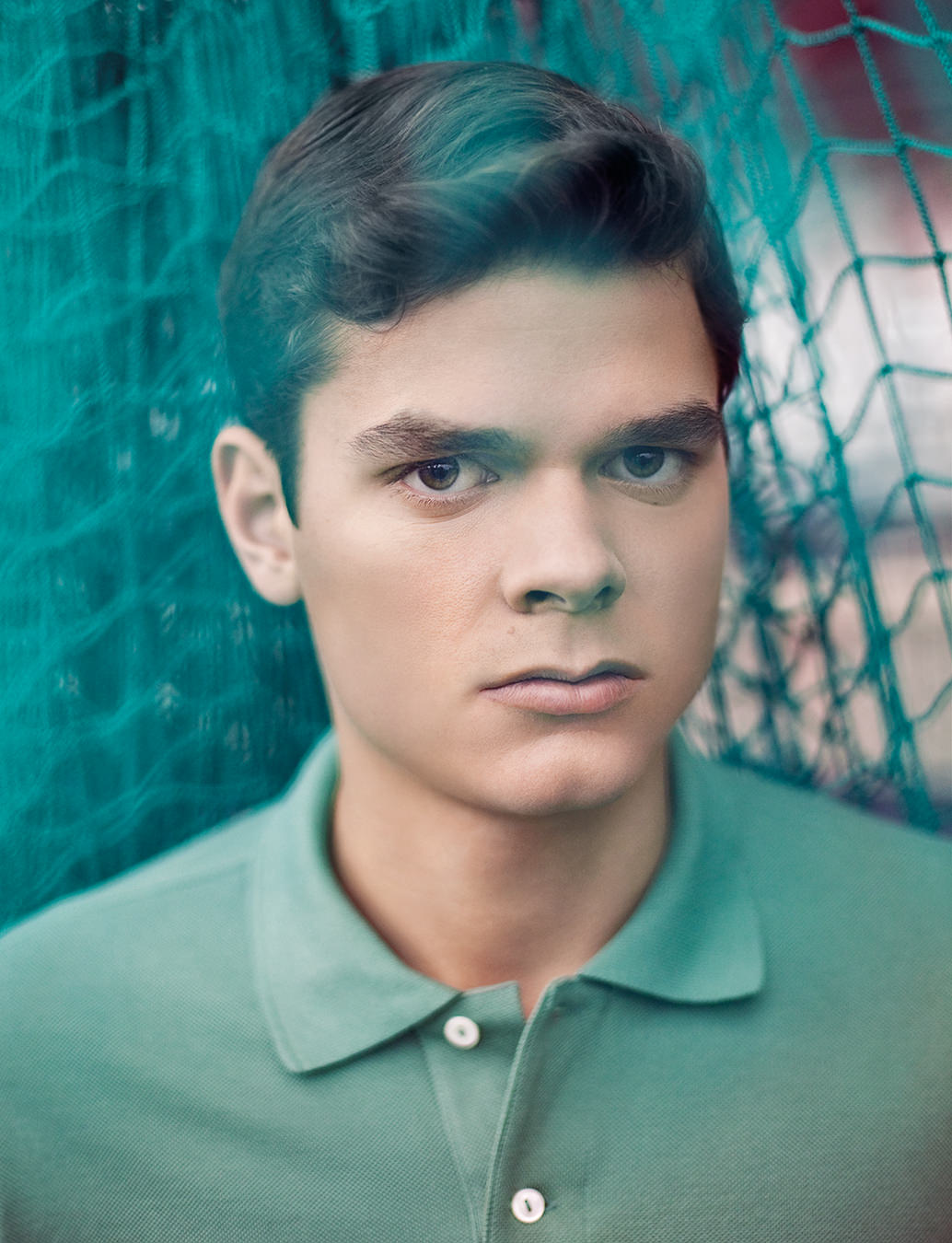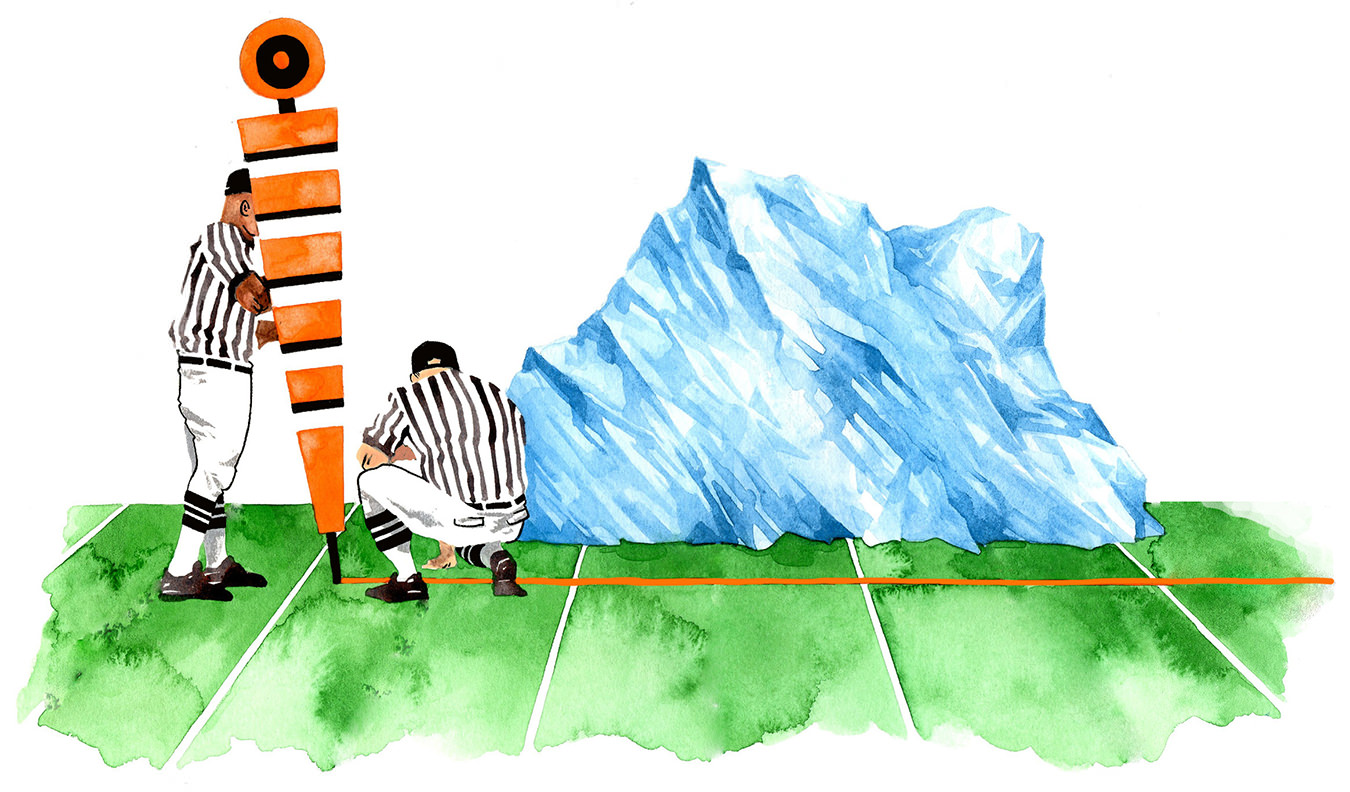Simon Pond
Who's on first?

Simon Pond digs in beside home plate, the bat in his clenched fists held far away from his body. He looks like a wary gardener preparing to swat a hornet’s nest. An unorthodox batting stance tempts some pitchers; on this May night in Boston, Bronson Arroyo of the Red Sox takes the bait. The towering right-handed pitcher, who is named after actor Charles Bronson of vigilante movie fame, tries to sneak a fastball past the Toronto Blue Jays rookie.
Pond fouls it off. He knows the pitcher from their days as teammates playing winter ball in the Caribbean. They wore the uniform of the Santurce Cangrejeros—the Crabbers—a legendary team from Puerto Rico. The island was but one stop for Pond on an odyssey that has seen the North Vancouver resident smack baseballs for 11 other teams from the Carolinas to New England. He’d even played on Jupiter (Florida, that is) on a team called the Hammerheads. Pond is himself hard-headed, enduring a decade of riding the bus in the bush leagues before at long last being given this bit role in what players call The Show. He does not want to lose his hard-earned spot.
Earlier in the game, the left-handed batter drove an Arroyo pitch to the Green Monster, the painted wall that looms over Fenway Park’s left field. Two runs scored and Pond got as far as second base. Now, the Jays trail by a run. Arroyo’s next pitch to Pond is a change-up. It is the last he will throw on this night, as Pond guesses correctly and unleashes his distinctive hands-held-out swing. The ball soars high over the head of the centre fielder. Racing to first base, Pond thinks, “Wow, I hit that ball good.” He watches the sphere’s majestic arc before it drops into a chevron of fans in the lee of the Green Monster in straightaway centre. Home run.
The fan in Section 36 who caught the ball throws it back onto the field, a display of disdain for a homer hit by the opposition. Johnny Damon, the long-haired outfielder, fetches the ball, tossing it to Toronto’s third-base coach. After the game, Pond is presented a souvenir of his first big league home run.
He had gone into the game with a pathetic batting average of .059. You must hit at least your weight, in Pond’s case, 205 to be considered worthy of being in the line-up. He needed those two hits off his old teammate, the double and homer Pond’s answer to those doubting his value to the Blue Jays’ roster. He had sacrificed too much, waited too long, come too far to let this opportunity slip away.
Few players last a decade in the minor leagues, choosing to quit rather than suffer continued indignities and frustrations in pursuit of their dream. In one game … one at-bat … one swing, Pond earned a reward for his perseverence. Not that he allowed himself to be caught in the moment. “When you’re out there playing, you’re not thinking about the last ten years coming together in one moment,” he said later. “It’s just another home run.”
Breaking into the major leagues is tough. Being a Canadian breaking into the major leagues is tougher. In 27 seasons, only ten Canadians have worn the Blue Jays uniform. Pond, whose broad face and easy grin resemble those of actor Matt LeBlanc (Joey on Friends), made it 11.
He has always been willing to do whatever coaches have asked of him. Trained as a shortstop, he has learned first and third bases, fielding hundreds of throws deliberately thrown in the dirt at practice. Then he learned the outfield, shagging fungo flies for hours at a time. He has been an understudy willing to learn the lines of not only the leading man but those of the supporting roles and even the cameos, anything to get a place on stage.
He was born on Oct. 27, 1976, six days after Cincinnati’s Big Red Machine swept the New York Yankees in the World Series. His parents—a Fordham University student from Montreal and a nurse from the Bronx—met in New York, before moving to Newfoundland where his father worked as a marine biologist. Two children were born there, while a third came following a job transfer to the West Coast. That boy was named Simon Emilio, his middle name reflecting his mother’s Puerto Rican heritage.
He was fortunate to grow up in a North Shore suburb of Vancouver, for one of the neighbourhood coaches was a middle-aged ex-pitcher whose own diamond dreams ended at age 23. Dave Empey readily admits he can be an intense and intimidating presence. So, he was surprised when one young player called him to ask for extra batting practice. “Thirteen-year-old kids don’t phone you. Parents do,” Dave Empey said.
Young Simon and his coach spent long hours working on hip rotation, weight shift, the placement of hands on the bat—the minute adjustments that make a great swing. They also worked on fielding, as Pond scooped up ground ball after ground ball after ground ball. One day he asked how long the practice would take, as he wanted to leave for a party. Empey told him that somewhere in California, some other teenager was fielding groundballs in practice and might someday battle Pond for a spot on a roster. That simple lesson was a turning point for the youth, who never again asked to leave practice early.
After 200 to 300 swings a day, coupled with a careful regimen of weightlifting, Pond’s stroke became the kind in which a pitched ball seems to explode off the barrel of the bat. His monstrous home runs began to attract the attention of scouts. When Pond was a high school senior in 1994, Empey remembers a game at a decrepit park with a large outfield near Seatac airport outside Seattle. Pond arrived just 15 minutes before game time because of a delay at the border. During a hurried infield practice, he took a bad-hop grounder in the face. He didn’t have time for batting practice, yet, in his first at-bat, he drove a ball into the parking lot beyond a cow-pasture outfield. A scout at the game measured the clout at an impressive 397 feet.
The winning pitcher that day was Ryan Dempster, a Pond teammate from Gibsons on British Columbia’s Sunshine Coast, a short ferry ride from the North Shore. In the amateur draft that year, Dempster was selected in the third round, while Pond was picked by the Montreal Expos in the eighth round, the 224th player chosen overall. He figured he’d be in the majors in three or four years tops.
He got on base in each of his first 13 games for the Expos’ rookie team in Florida’s Gulf Coast League, a training ground for teenagers. (One game was delayed when Pond’s teammate in right field had to abandon his post when a poisonous snake slithered onto the field.) He worked his way up to the Cape Fear Crocs in the South Atlantic League, before being sent back down. After six seasons, he was back where he started. “Most guys would have quit, because it was frustrating,” Empey said. “He knew he could play in the big leagues. He just didn’t get the shot.”
In 2000, the Expos traded him to the Cleveland Indians organization, where he played for the Kinston (N.C.) Indians and the Akron (Ohio) Aeros. The Indians released him without explanation on March 30, 2002. He was an unsigned free agent for only a few hours, though, as the Blue Jays scooped him up. He spent the 2002 season with Dunedin in Florida, after all his years of work still playing rookie ball in the same state, only now his teammates were years younger. Time was running out.
Last year, the Jays promoted him to the New Haven Ravens, where his .338 average earned another quick promotion to the Syracuse SkyChiefs, the organization’s top farm club. He hit .306 in 63 games, including a spectacular 5-for-5 game against Charlotte that included three home runs.
Pond’s big break finally came during spring training earlier this year. He was battling another player for a spot on the roster when the Jays traded Jayson Werth to the Los Angeles Dodgers. Jays manager Carlos Tosca preferred Pond’s swing, feeling his consistency would allow him to thrive in a backup role, whether as a pinch-hitter or utility player.
An injury to slugger Carlos Delgado provided Pond a chance to fill-in as designated hitter. He went through a rough patch, the 0-for-3s and -for-4s adding up, as he was placed ever lower in the batting order. Even when he struck the ball hard, it seemed to be right at a fielder. “Baseball is hard luck,” he admits.
Pond was summoned to the manager’s office at SkyDome before a June game against the Dodgers. Once inside he saw that Tosca had been joined by General Manager J.P. Ricciardi and Assistant General Manager Tim McCleary. “I knew what was going down,” Pond said. “Hitting .150 in the big leagues doesn’t cut it.” After a 10-year penance in the purgatory of the minors, after just 16 games with the parent club, after hitting his first major-league home run, Pond was being sent down. Later that day, he was dressing in the uniform of the Syracuse SkyChiefs.
Pond took the news in stride. He knew the following months offered many possibilities—he could be called up again, assigned to play for Canada at the Olympic games, or even traded to another team. In any case, he has not given up on his quest. “I believe I’m going to be a big league player, a good big league player. I haven’t achieved that yet. I say to people that sometimes I have an unrealistic expectation. Maybe I have too high an opinion of myself. Maybe I’m full of crap.” He paused to consider the possibility. “But I don’t think so.” In his second game after returning to the SkyChiefs, Pond drove a ball deep into the Syracuse night for a home run. He was on his way back.
Photo courtesy of System 4 Productions Inc.




